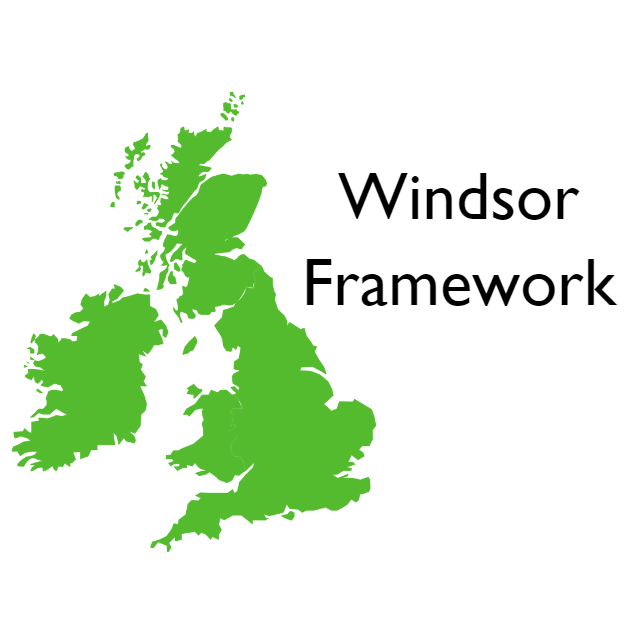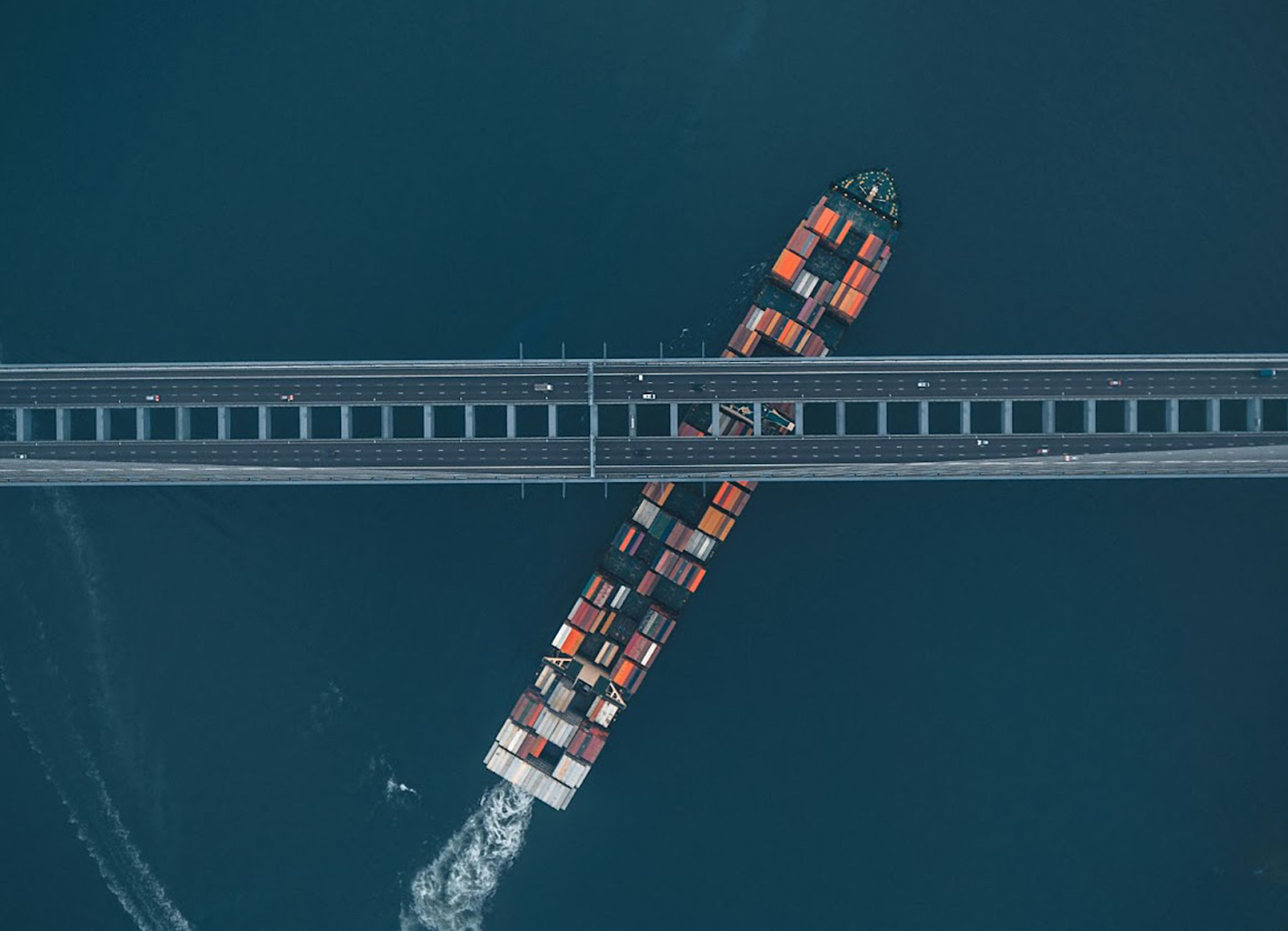
The Latest on Windsor Framework and UKIMS: Implications for the UK, Northern Ireland, and Green Fulfilment
The Windsor Framework and the UK Internal Market Scheme (UKIMS) represent transformative changes in how goods are traded between the UK and Northern Ireland. These frameworks were established to address complex trade issues that arose following Brexit, particularly around the movement of goods and the alignment of regulations between the UK and the European Union (EU). The goal of these changes is to streamline trade processes, reduce friction for businesses, and provide clarity on regulatory practices. This is especially important for industries involved in e-commerce fulfilment, order fulfilment services, and shipping operations. In this blog post, we’ll explore the details of the Windsor Framework and UKIMS, their implications for the UK and Northern Ireland, and how these changes are impacting businesses like Green Fulfilment.
Understanding the Windsor Framework and UKIMS
The Windsor Framework was introduced as a practical and flexible response to the trade challenges created by the Northern Ireland Protocol. Initially, the Northern Ireland Protocol was designed to avoid the establishment of a hard border between Northern Ireland and the Republic of Ireland, ensuring the peace established by the Good Friday Agreement would remain intact. To achieve this, the protocol kept Northern Ireland aligned with certain EU rules, even after the UK had left the EU. However, this arrangement inadvertently led to the creation of a de facto border in the Irish Sea. This had unforeseen consequences for businesses, as the flow of goods between Northern Ireland and the rest of the UK became complicated by customs checks, regulatory barriers, and additional costs. These difficulties created significant delays and operational challenges for companies trading across the Irish Sea.
Recognising the need to address these issues, the Windsor Framework was developed to simplify the movement of goods between Great Britain (GB) and Northern Ireland (NI). One of the key innovations of this framework is the creation of Green and Red Lanes, designed to separate goods based on their final destination. Goods that are intended to remain in Northern Ireland, with no risk of crossing into the EU, are sent through the Green Lane, which requires minimal checks and simplified customs procedures. On the other hand, goods that are “at risk” of entering the EU market go through the Red Lane, where they are subject to full customs checks and EU regulatory compliance. This system is designed to uphold the integrity of both the UK internal market and the EU single market, while ensuring that businesses in Northern Ireland can operate with reduced friction.
UKIMS Summarised
The UK Internal Market Scheme (UKIMS) complements the Windsor Framework by facilitating the movement of goods within the UK, including Northern Ireland, without imposing unnecessary barriers or additional costs. By ensuring that goods which stay within the UK are not subject to the same level of scrutiny as goods crossing into the EU, UKIMS helps businesses save time and money on administrative tasks and customs paperwork. According to government estimates, 97% of goods moving from Great Britain to Northern Ireland are expected to pass through the Green Lane under these new arrangements. This reduction in customs checks and paperwork is a major win for businesses, enabling smoother trade and faster delivery times.
Key Changes Under the Windsor Framework
To fully appreciate the scope of the Windsor Framework and UKIMS, it’s helpful to look at the key changes that have been implemented:
Green and Red Lanes System: The introduction of the Green and Red Lanes is one of the most notable changes under the Windsor Framework. Goods that are intended to remain in Northern Ireland—such as those sold in local shops or used in Northern Irish businesses—can be processed through the Green Lane, which means they face fewer checks and less paperwork. Conversely, goods that could potentially enter the EU market, either directly or through Northern Ireland, must go through the Red Lane. These goods are subject to full EU customs checks and must comply with EU regulatory standards.
VAT and Excise Duties: The Windsor Framework also makes changes to VAT and excise duty rules in Northern Ireland. Under the new framework, the UK government has more flexibility in setting VAT rates for goods sold in Northern Ireland, which allows for greater alignment with UK tax policies. At the same time, the framework ensures that the EU’s single market rules are respected when it comes to goods that could potentially be sold in EU countries. This dual approach helps Northern Ireland benefit from UK tax policies while maintaining compliance with EU trade rules.
Regulatory Alignment: Another important aspect of the Windsor Framework is the regulatory alignment between Northern Ireland, the UK, and the EU. The framework allows Northern Ireland to stay aligned with certain EU rules, particularly those related to the Single Market, to facilitate cross-border trade between Northern Ireland and the Republic of Ireland. At the same time, the framework ensures that businesses in Northern Ireland can access the UK internal market without facing additional regulatory hurdles.
UKIMS Oversight: The UK Internal Market Scheme (UKIMS) plays a critical role in ensuring that the principles of the UK internal market are upheld. UKIMS helps prevent trade distortions and ensures that businesses in Northern Ireland are not disadvantaged compared to those in the rest of the UK. By providing a clear and consistent framework for trade, UKIMS helps businesses navigate the complexities of post-Brexit regulations while keeping trade within the UK as seamless as possible.
Implications for the UK and Northern Ireland
Economic Impact
The Windsor Framework and UKIMS have been designed to ease trade between Great Britain and Northern Ireland, which is vital for maintaining the UK’s internal market. Trade between these regions is substantial, with Northern Ireland importing £13.4 billion of goods from Great Britain in 2021. By simplifying the movement of goods, businesses are expected to save on administrative costs and reduce delays at the border. This is particularly beneficial for sectors like e-commerce fulfilment, order fulfilment services, and shipping operations that rely on efficient and timely logistics. Reduced customs checks through the Green Lane will help businesses deliver goods faster, improving customer satisfaction and reducing operational costs.
Impact on Businesses
For businesses operating in Northern Ireland, the Windsor Framework provides much-needed clarity and stability. Companies involved in shipping, warehousing, and third-party logistics (3PL) now have a clearer understanding of the rules and regulations governing cross-border trade. With the introduction of the Green Lane, businesses that deal with goods that remain within Northern Ireland face fewer checks and regulatory hurdles, allowing them to operate more efficiently. The reduction in customs requirements also means that businesses can focus more on their core operations, rather than being bogged down by complex paperwork and regulatory compliance.
Consumer Benefits
The streamlined processes introduced by the Windsor Framework mean that consumers in Northern Ireland can continue to enjoy a wide range of products from Great Britain without facing price hikes due to tariffs or delays in shipping. This is a significant benefit for consumers who shop online or rely on goods from mainland UK. As a result, consumers can expect a smoother and more reliable shopping experience, with fewer disruptions caused by regulatory changes. Faster delivery times, reduced costs, and improved product availability are all potential benefits of the Windsor Framework for Northern Irish consumers.
Support for B2B and Small Business Fulfilment
The simplified processes under the Windsor Framework also benefit B2B order fulfilment and small business fulfilment. Smaller enterprises often lack the resources to navigate complex trade rules, so the reduction in paperwork and the ability to use the Green Lane can help them stay competitive. Additionally, the streamlined customs process can reduce shipping costs and enable businesses to focus on customer service and growth. Small businesses that rely on cross-border trade are expected to benefit significantly from these changes, as they will now have a clearer and more stable trading environment.
Key Questions Answered
What is the Green Lane in the Windsor Framework?
The Green Lane is a simplified customs process introduced by the Windsor Framework. It allows goods that are intended to remain in Northern Ireland to move with minimal checks and paperwork, reducing delays and costs for businesses. This system helps maintain smooth trade within the UK, while ensuring that goods intended for the EU go through a more rigorous Red Lane process.
Do I need to register for UKIMS?
If your business moves goods from Great Britain to Northern Ireland, you may need to register for UKIMS. Registration is essential for businesses that supply goods to Northern Ireland retailers or end-users, particularly for regulated products like agrifood and chemicals. Registering helps simplify customs procedures, offers tariff-free access, and ensures compliance with both UK and EU rules under the Windsor Framework.
What are the benefits of UKIMS?
UKIMS provides several key benefits for businesses trading between Great Britain and Northern Ireland. It simplifies customs procedures, reduces costs, and ensures regulatory compliance. UKIMS also supports businesses in accessing the Northern Irish market while maintaining sustainability initiatives, which is increasingly important for environmentally conscious consumers.
How to Register
To apply for the UK Internal Market Scheme (UKIMS) under the Windsor Framework, follow the steps outlined on the UK government’s website. First, ensure that your business is eligible for the scheme by checking whether the goods you move are classified as “not at risk” of entering the EU. Goods must be destined solely for Northern Ireland to qualify for simplified customs processes.
Once you’ve confirmed eligibility, you can register online via the HMRC portal. You will need to provide detailed information about your business and demonstrate that your goods are intended for use only in Northern Ireland. After registration, you’ll be approved to use the Green Lane, which reduces the number of customs checks on your goods.
While there is no strict deadline for registering, it’s advisable to do so as soon as possible to take full advantage of the simplified processes under the Windsor Framework. Full compliance with the Windsor Framework is expected to be required by the end of 2024. Businesses are encouraged to stay updated by visiting the government’s website for further guidance.help you save more money in the long run, freeing up capital so you can grow your business efficiently.


